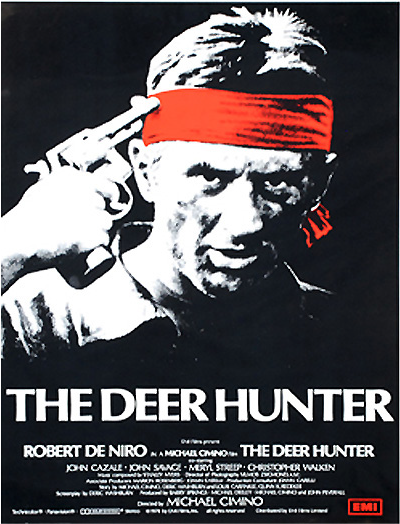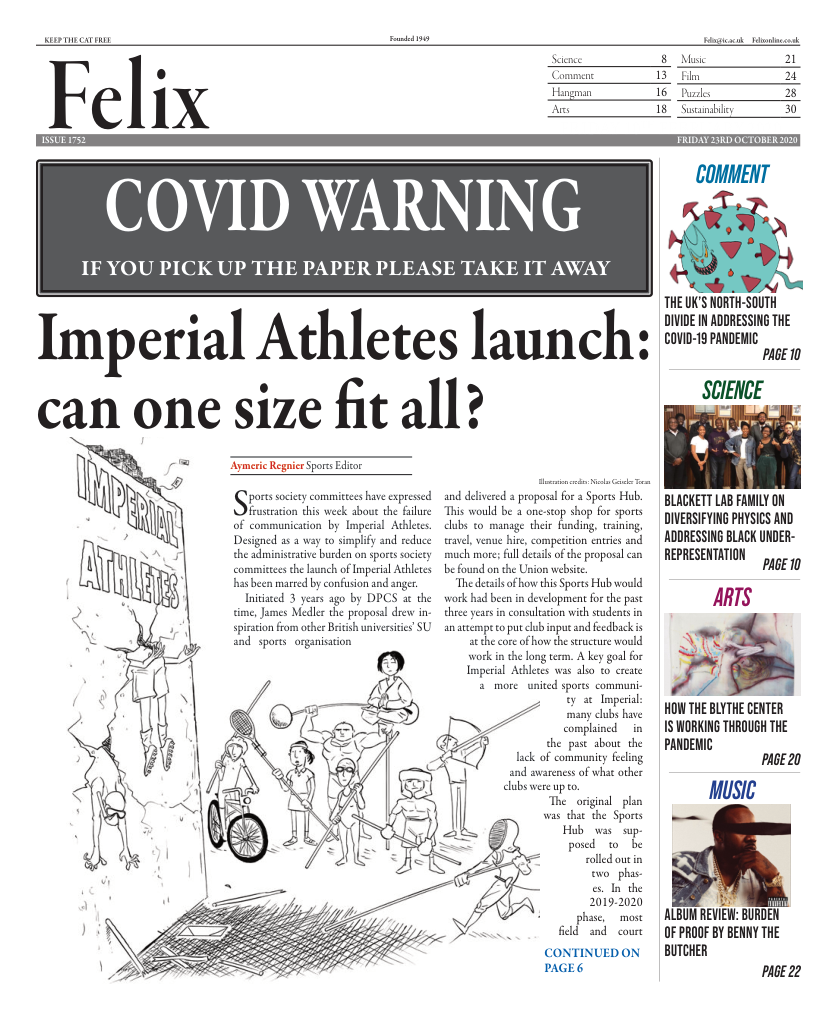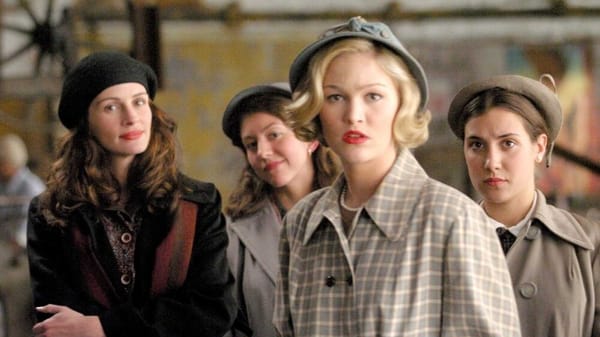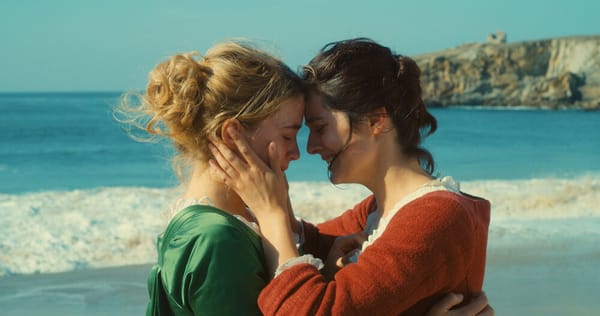Free film of the week: Deer Hunter
Film Editor Oliver Weir recommends that you use this QR code to watch Michael Cimino's 1978 Best Picture winner 'The Deer Hunter' for free

After hunting, five friends head to Welshy’s Bar in the steel-mill town of Clairton, Pennsylvania, to celebrate the imminent deployment of two of them to Vietnam—Mike and Nick. Another member of the group, John, begins to play Chopin’s Nocturne No. 6 on a piano in the corner of the room. Nobody speaks, nobody looks at anything in particular. As the piece ends, there is a momentary silence. The camera pans to Mike: in his face there is a sobriety, a gratitude for his little town and for his friends—an appreciation for the relative banality of his life. Then the regular beat of a helicopter sounds, and the film cuts to carpet bombs obliterating a Vietnamese village. Civilians are massacred. An injured woman is gunned down by the Viet Cong, along with her child. Mike is drenched in blood. We are a long way from Chopin now.
The Deer Hunter’s successes are all present in this exquisite transition. Life and death, and war and peace, are presented in the most undecorated manner, and the starkness of their contrast is made apparent by the tenuity of the membrane separating them. Indeed the larger plot—of Mike (Robert De Niro), Nick (Christopher Walken), and Steven ( John Savage) integrating back into society—exhibits the very same interplay of opposites. Dualities are present throughout. For example, when Mike goes on his first hunt since coming home, he hikes up into the clouds, and as he ascends some rock formation, gun in-hand, a reflection follows him in the placid lake below.
These scenes, as impeccable as they may be, are surrounded by unending gristle. I don’t know how Cimino would justify the 40 minute long wedding sequence. Perhaps he’d say to the detractors that the film ‘just wouldn’t be the same without it’—I suspect many would reply: ‘good’. A long movie is not, a priori, a good movie, and it can be easy for directors to mistake self-indulgence or ill-discipline for vision. So what unites all the great long movies? Well, it is an encompassing quality; they entirely arrest a time, emotion or idea. I’m not convinced The Deer Hunter fully succeeds in that regard. While the game of Russian roulette serves as an effective symbol for the nature of killing in war, and the final scene serves as a nice ironic jab at the nature of war, the soul of the movie is missing, and it doesn’t give you a whole lot to chew on as the great epics of cinema do.
The Deer Hunter’s problems by no means lessen the scenes I lauded before. On top of those scenes, Vilmos Zsigmond’s cinematography is faultless, and the Cavatina theme by Stanley Myers is beautifully apt. Then there are the performances—all coalescing into effectively one character: the common man from Clairton. Each performance feeds into the next: Christopher Walken’s Academy Award winning performance being complemented by the equally engaging Robert De Niro, who is in turn made better by Meryl Streep’s enigmatic presence as Linda and John Savage’s emotional performance as Steven. The greatness of the performances are certainly not limited by the screen time of the actors; you need only watch John Cazale as Stan. Cazale filmed while he was living with terminal cancer, and never got to see the work in its final form. In the few scenes he has, as the runt of the group—never fully fitting in, always chasing girls, often being the butt of a joke or the target of a slap— his acting is spellbinding, the work of a man who knows it will be his last. Is The Deer Hunter without faults? No. Is it one of the great American epics? I’d say no. But if you can withstand these flaws, along with the film’s obvious bloatedness, The Deer Hunter will be sure to reward you with flashes of sheer magnificence.











